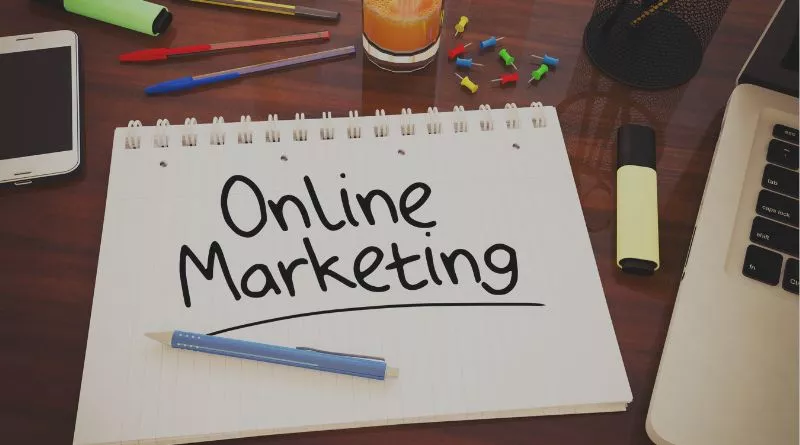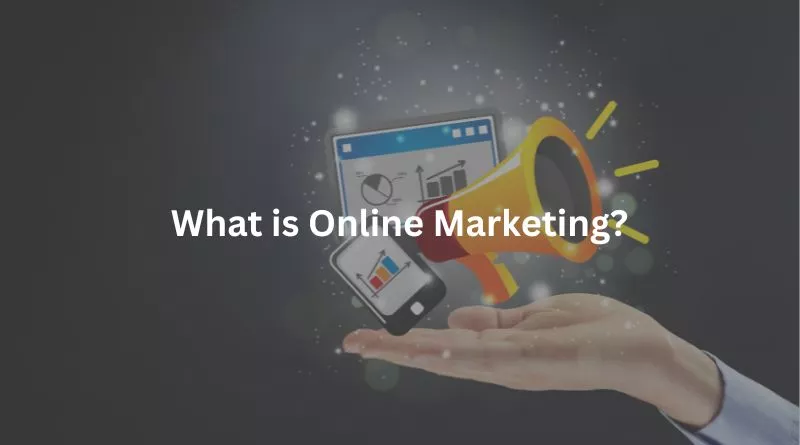In the contemporary business world, the term “online marketing,” often referred to as “digital marketing,” has become the bedrock of promoting brands, products, or services via web-based channels.
The core idea is to disseminate a brand’s message to potential customers through an array of digital strategies and mediums.
These encompass email campaigns, social media, digital advertising, search engine optimization (SEO), and various others.
The ultimate aim? To connect with potential customers where they already spend a significant portion of their time: online, browsing, shopping, socializing, and searching.
However, the digital realm brings both opportunities and challenges to online marketing.
Utilizing primarily digital mediums to interact with and convert virtual visitors into paying customers, businesses embark on a journey that encompasses various facets of marketing, each with its own unique impact.
What is the difference between Online Marketing and Offline Marketing?
It’s imperative to distinguish online marketing from traditional offline marketing.
Traditional marketing relies on offline mediums such as print, billboards, television, and radio advertisements.
Converting the audience from these offline mediums into online customers can be challenging, as it necessitates shifting from one medium to another, such as directing individuals from a billboard to a website.
In the pre-digital era, marketing products or services was often costly and challenging to measure.
Television ad campaigns, for instance, relied on consumer focus groups to gauge brand awareness.
In contrast, today, anyone with a business can participate in online marketing, creating customer acquisition campaigns at little to no cost.
The beauty of digital marketing lies in its ability to experiment and optimize campaigns, fine-tuning their efficiency to boost the return on investment (ROI).
What are the Benefits of Online Marketing?

Online marketing offers a trove of benefits, making it a pivotal strategy for modern businesses.
One of its key advantages is the ability to measure the impact of marketing campaigns accurately.
Unlike traditional marketing, where measuring the reach and impact of an advertising campaign could be challenging, digital marketing provides precise metrics.
Marketers can ascertain the effectiveness of campaigns and understand how visitors from different digital channels interact with the digital experience.
By analyzing visitors that convert into paying customers, businesses gain valuable insights into where and how the online customer journey culminates in a purchase.
Also Read: What is Search engine optimization?
What are Online Marketing Tools?
To navigate the complexities of online marketing, an array of tools and techniques is at your disposal:
- Email Marketing or Marketing Automation: Email marketing is a powerful tool to engage customers, nurture leads, and build brand loyalty through personalized email campaigns.
- Social Media Marketing: Leveraging social platforms to create brand awareness and connect with customers. It’s a hub for building communities and promoting content.
- Search Engine Optimization (SEO): Optimizing your digital assets to rank higher on search engine results pages, improving visibility and driving organic traffic.
- Search Engine Marketing (SEM): Paid advertising on search engines like Google, giving your brand prime real estate in search results.
- Online Events & Webinars: Engaging customers through interactive web events, fostering education, and relationship building.
- A/B Testing & Website Optimization: Enhancing the user experience by testing variations of web pages and content to determine what resonates best with your audience.
- Content Marketing: Creating and distributing valuable, relevant content to attract and engage your target audience.
- Web Analytics like Google Analytics 4: Utilizing data-driven insights to understand customer behavior, demographics, and the performance of marketing campaigns.
- Customer Relationship Management (CRM): Managing relationships and interactions with customers, streamlining communication, and improving customer satisfaction.
- Content Management System (CMS): Facilitating the creation and management of digital content, ensuring your website is up-to-date and engaging.
- Pay-Per-Click (PPC) Advertising: Placing online ads that you only pay for when someone clicks on them, maximizing your budget.
- Affiliate Marketing: Collaborating with affiliates who promote your products or services and earn a commission for driving traffic or sales.
Online Marketing Examples
To elucidate the practicality of digital marketing, let’s delve into real-world examples:
- Canon’s Search Advertising: Canon strategically advertises keywords related to “photography” on Google and Bing search engines, targeting an audience with a keen interest in their products.
- Whole Foods’ Email Marketing: Whole Foods collects email addresses on their website to build email lists. They utilize this for advertising new products, sales, and in-store events, forging stronger customer connections.
- Dove’s Social Media Campaigns: Dove creates video advertisements and shares them on platforms like Facebook and Twitter. These campaigns spark conversations, bolstering brand reputation and product promotion.
- Bite Beauty’s Influencer Partnership: Bite Beauty partners with influencers to promote their lipsticks to a niche audience of beauty enthusiasts, harnessing the power of influencer marketing.
Challenges in Online Marketing
While digital marketing offers myriad opportunities for businesses to expand their online presence and nurture their audience, it’s not devoid of challenges.
The digital landscape can sometimes feel impersonal due to the virtual nature of interactions. Online marketers need to tailor their strategies to suit their customers’ preferences and needs.
The overcrowded and competitive nature of online marketing can also pose challenges.
Gaining and retaining the attention of potential customers can be challenging due to the abundance of businesses vying for their attention.
Building a unique value proposition and a compelling brand voice becomes imperative.
How to start Online Marketing?
Embarking on your online marketing journey involves several essential steps:
- Set Measurable Goals: Begin by setting clear, measurable business objectives. Are you aiming to acquire a specific number of customers, generate leads, or increase your social media following? Establish a means of tracking progress toward these goals.
- Construct an Online Presence: Create an online platform for your business, such as an e-commerce site, blog, or podcast. Develop high-quality content optimized for search engines (SEO).
- Leverage User Testimonials: Collaborate with satisfied customers willing to endorse your products through case studies or infographics, bolstering social proof.
- Capture Leads: Develop a landing page equipped with lead capture forms to initiate brand development and drive traffic.
- Employ Analytics: Utilize an analytics platform like Google Analytics 4 to measure and monitor the effectiveness of your marketing endeavors.
How to use Web Analytics?
A significant aspect of online marketing is web analytics, a vital tool for tracking progress toward your goals. Web analytics involves the following steps:
- Set Up a Measurement Plan: Define actions a potential customer can take on your website and map these actions along a customer journey.
- Implement Web Tracking Tools: Utilize web tracking tools like Google Analytics 4 to monitor these actions and gather data on web metrics.
- Analyze Customer Behavior: Analyze visitor behavior, conduct market research, and study visitor demographics. Use this data to inform marketing decisions and campaign planning.
- Beyond Web Analytics: Incorporate surveys, user testing, and in-person conversations to gain insights into the overall user experience. Personalization and audience segmentation make the collected data actionable.
Also Read: What is a Content Management System?
Optimizing Your Online Marketing Efforts
One of the remarkable advantages of online marketing is the ability to optimize campaigns continuously. Key strategies for optimization include:
- SEO: Focus on creating content that appeals to both search engines and readers. Build content for the audience rather than solely for search engine optimization.
- Social Media Engagement: Use social media campaigns to engage your audience effectively and demonstrate how your products function. Social media is an excellent platform for gathering feedback and reviews.
- A/B Testing: Employ A/B testing to measure the impact of changes to your marketing campaigns accurately.
- Offline-Online Integration: Merge offline and online marketing efforts to capitalize on both realms.
Conclusion
Online marketing, also referred to as internet marketing, web marketing, digital marketing, or search engine marketing (SEM), plays a pivotal role in the business world.
It encompasses various techniques, such as online advertising and internet advertising, and is instrumental in building and expanding an online presence, reaching broader audiences, and connecting with customers.
Online marketing is, without a doubt, an integral component of any comprehensive marketing strategy.


